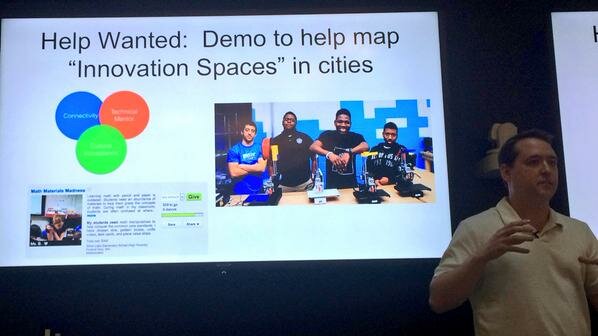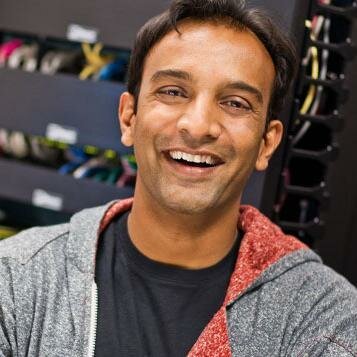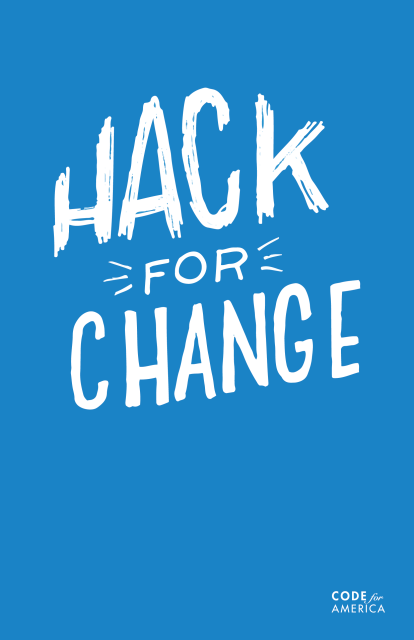Over the past three and a half years, I’ve been a consultant for the Smart Chicago Collaborative helping with research, writing, and manage events, Chicago’s National Day of Civic Hacking, the CivicWorks Project, and helping to organize and document the Chi Hack Night. Today will be my last day consulting for the Smart Chicago Collaborative.
Before I joined Smart Chicago, I was working at the Illinois Department of Employment Security (during the height of the recession) and getting my Master’s in Public Administration (International Non-Profit Management) from DePaul University. That experience would prove to be quite the education into the state of government technology.
When I began to do consulting work here, first with writing for the blog and later managing the CivicWorks Project, I began to learn a whole other side of things. I learned how a civic organization should be run.
Perhaps the favorite thing about consulting for Smart Chicago is that through the work I was able to learn a lot of things – and write about it.
The @CivicWhitaker Anthology
That means that all together, the Smart Chicago blog has a wealth of knowledge about civic technology. Smart Chicago has taken many of these lessons and is combining them into a book— “The @CivicWhitaker Anthology”, which will be available next week during the Code for America Summit. Stay tuned.
Here’s a look at some highlights of my work here that will be included in the book:
The CivicWorks Project
The CivicWorks Project was funded by the Knight Foundation and the Chicago Community Trust to spur support for civic innovation in Chicago. The program goals are to produce 200 content pieces, 5 apps that solve government problems, and 5 apps that solve community problems. I served as the project manager for Civic Works.
These projects were small scale projects with budgets of about $10,000, and I worked with high capacity organizations who do great work in their community. This also enabled me to support the work of many emerging organizations and companies including Textizen, LocalData, Postcode.io, FreeGeek Chicago, and mRelief. Some of these projects were simply connecting existing technology in ways I knew would support their work (Providing LocalData to SWOP) while others were more on the experimental side (Crime and Punishment in Chicago and Convicted in Cook). If anyone ever asks you what a Master’s of Public Administration degree is good for – it’s for being able to understand problem solve inside governments and non-profits.
Being able to do this in the context of technology tools for organization was a tremendous privilege.
Chi Hack Night
In addition to managing this project, a large part of my work with Smart Chicago involved covering Chi Hack Night. By being paid to go to Chi Hack Night, it enabled me to take a much greater part in the event. (Before, I would run from my office on Chicago’s north side and race downtown to make the event in time.) It also meant being able to be one of the more productive Code for America Brigade Captains since I could wake up in the morning and think only about civic tech things instead of a different day job. One of the things that’s been interesting for me personally is watching other Brigade members also transition into full time civic tech positions. To me, one of the biggest benefits of Brigades is that they act as “farm teams” that help develop talent for civic technology organizations.
Chi Hack Night is a fantastic learning environment. The convergence of developers, non-profit employees, designers, government employees, data scientists in an environment that discourages jargon and sets up opportunities for each side to learn from the other. One of the most fascinating things to watch at Chi Hack Night is the technologists becoming more knowledgable about civic issues and those from the civic sector becoming more technically savvy. As part of my role at Smart Chicago, I’ve been blogging about hack night and have written over a hundred blog posts covering hack night presentations.
National Day of Civic Hacking
Another aspect of the work that I’ve done has been with National Day of Civic Hacking, which has been one of the biggest magnets for getting people into the civic tech space. As part of my work, I helped to write how-to guides for newer communities on everything from how to run a hackathon to an introduction to civic technology.
Why I’m leaving Smart Chicago now
When I first started with Chi Hack Night it was still in its early stages and now has grown beyond anyone’s expectations and is fully sustainable on its own. (With its own blog and twitter handle!) With Chi Hack Night growing in leaps and bounds, Smart Chicago will be stepping back from its coverage of the event.
National Day of Civic Hacking is another event that’s grown tremendously since its inception. The event now helps to spur civic innovation communities across the country. With it now being managed by Code for America Communities (which I’ve been doing consulting for since last year), there’s also less of a need for Smart Chicago to provide the same level of writing than it was before. With so many groups doing their own event locally, Smart Chicago will focus on other things and will not be hosting another National Day of Civic Hacking event.
Additionally, Smart Chicago will be expanding their Documenters program to include more people. This post from the Knight Foundation is a prime example of why the documenting the work is so important. Without the documentation aspect of the work that we do, there’s not a real way to learn from our it.
I’ve learned a lot from my work at Smart Chicago, but now it’s time for other people to have the same opportunity to learn from working with the organization. Smart Chicago will be expanding the number of documenters continuing to write down lessons learned from Smart Chicago’s work. Having learned all I can from doing this type of work, it’s time to move on to other adventurous and new learning opportunities.
If you’re interested in keeping in touch, you can follow me on Twitter at @civicwhitaker or email me at [email protected]. You can also catch me at the Chi Hack Night every Tuesday at 6:00pm.

 U.S. Chief Data Scientist DJ Patil will be making a trip to Chicago for National Day of Civic Hacking.
U.S. Chief Data Scientist DJ Patil will be making a trip to Chicago for National Day of Civic Hacking. On June 6, 2015, thousands of people from across the United States will come together for National Day of Civic Hacking. The event will bring together urbanists, civic hackers, government staff, developers, designers, community organizers and anyone with the passion to make their city better. They will collaboratively build new solutions using publicly-released data, technology, and design processes to improve our communities and the governments that serve them. Anyone can participate; you don’t have to be an expert in technology, you just have to care about your neighborhood and community.
On June 6, 2015, thousands of people from across the United States will come together for National Day of Civic Hacking. The event will bring together urbanists, civic hackers, government staff, developers, designers, community organizers and anyone with the passion to make their city better. They will collaboratively build new solutions using publicly-released data, technology, and design processes to improve our communities and the governments that serve them. Anyone can participate; you don’t have to be an expert in technology, you just have to care about your neighborhood and community.